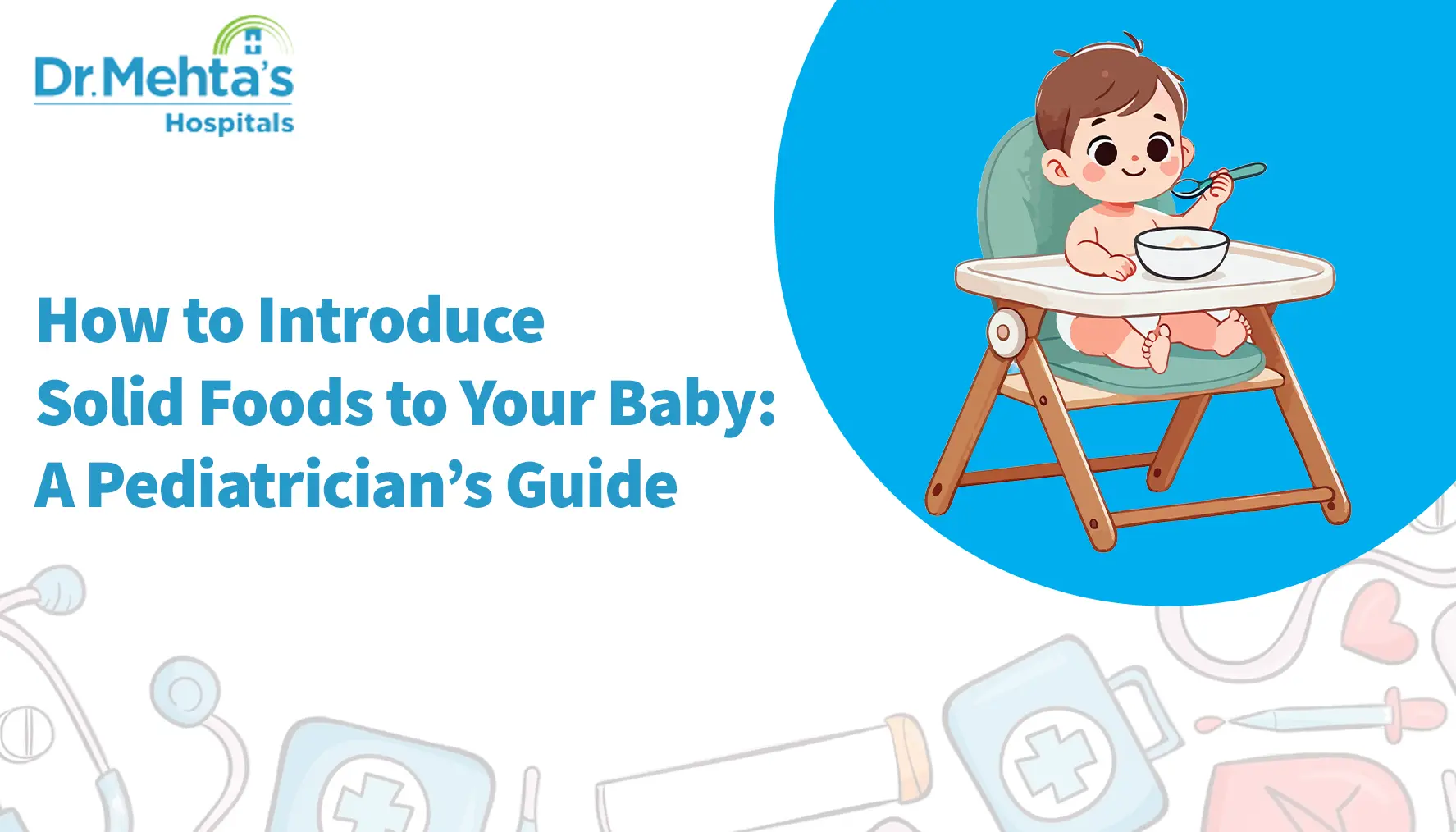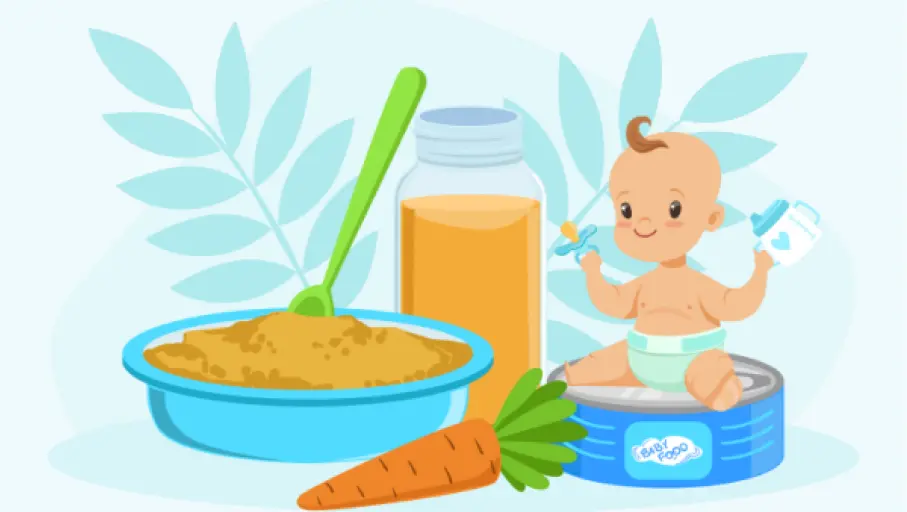Table of Contents

The transition to solids is one of the most exciting phases of your baby’s life. As parents, understanding the right time to introduce solids and how to do it properly will make the process easier and more enjoyable for both you and your little one. In this guide, we share guidance recommended by pediatricians to help you feel confident in starting this journey.
Paediatric specialists indicate that most babies are ready to start solid foods at around 6 months of age. At this stage, their digestive system is more developed, and they can show signs of readiness, such as sitting up with minimal support, showing interest in food, and being able to swallow semi-solid textures. This is generally considered the right time to transition your child to solids.
Paediatricians usually suggest starting with soft, easy-to-digest, and iron-rich foods such as:
These first foods are gentle on the baby’s stomach while providing essential nutrients. Parents should introduce new foods one at a time, focusing on natural, single-ingredient items.
You don’t need special equipment. Usually, the following are enough:
Boiled or steamed vegetables that are mashed or blended make excellent first purees. In the early weeks, food should be smooth and runny. Introducing solids also supports key developmental milestones, such as hand-eye coordination and oral motor skills.

Introducing first foods to infants doesn’t have to be overwhelming. Here’s a gentle approach:
This allows your baby to adjust while helping you track any food-related reactions. For personalised advice, paediatric specialists in Chennai can guide you safely through this process.
In the beginning, 1 – 2 teaspoons per day are enough. By 7 – 8 months, babies can have 2 – 3 meals a day, each consisting of 2–3 tablespoons. Remember: breast milk or formula remains the main source of nutrition for the first year.
Yes. Mixing breast milk (or formula) with purees helps babies adapt to new tastes and textures. It also ensures added nutrition and makes food smoother for easier swallowing.
The 3-day rule means introducing one new food at a time and waiting three days before offering another. This helps parents identify possible food intolerances or allergic reactions such as:
Most paediatricians recommend this method. You can also consult kids’ doctors in Chetpet for expert guidance during your child’s early feeding journey.
Around 8–9 months, babies are often ready for finger foods. Options include:
Finger foods encourage independence and motor skill development.
Some babies need more time. Keep mealtimes stress-free and experiment with different textures and temperatures. Be patient; forcing can backfire. If refusal continues for weeks, consult your paediatrician.
To seek expert consultation, visit the paediatrics department at Dr. Mehta’s Hospitals, where child-friendly specialists offer personalised guidance for your baby’s nutrition journey.
Introducing solids is an exciting milestone in your baby’s growth. With the right guidance from experts at Dr. Mehta’s Hospitals, including their specialised paediatric intensive care unit, this transition can be smooth, safe, and enjoyable. Step by step, you’re nurturing a healthy, confident eater.
Q1. What is the best age to start solid foods for babies?
Most babies are ready around 6 months of age, as recommended by paediatric guidelines.
Q2. Can I give water when introducing solids?
Yes, small sips of water can be given once solids are introduced, especially in hot weather.
Q3. What should I do if my baby reacts to a food?
Stop feeding that food immediately and consult your paediatrician. Always follow the 3-day rule to track reactions.
Q4. Is baby-led weaning safe?
Yes, when done under supervision with soft, age-appropriate foods, it encourages self-feeding.
Q5. Can I use store-bought puree foods?
Homemade food is ideal, but paediatrician-approved packaged options may be used occasionally under guidance.
Table of Contents
Recent Post
About us
Dr. Mehta’s Hospitals is a leading multispecialty hospital in Chennai with over 90 years of excellence. With 400+ beds and 80+ specialties, its Chetpet and Velappanchavadi centers offer advanced, state-of-the-art, compassionate care under one roof.
Chetpet Contact Details
Velappanchavadi Contact Details
Feel free to ask your queries on
Our Specialities
About us
Dr. Mehta’s Hospitals is a leading multispecialty hospital in Chennai with over 90 years of excellence. With 400+ beds and 80+ specialties, its Chetpet and Velappanchavadi centers offer advanced, state-of-the-art, compassionate care under one roof.
Chetpet Contact Details
Velappanchavadi Contact Details
Feel free to ask your queries on
Our Specialities
Quick Links
Center Of Excellence